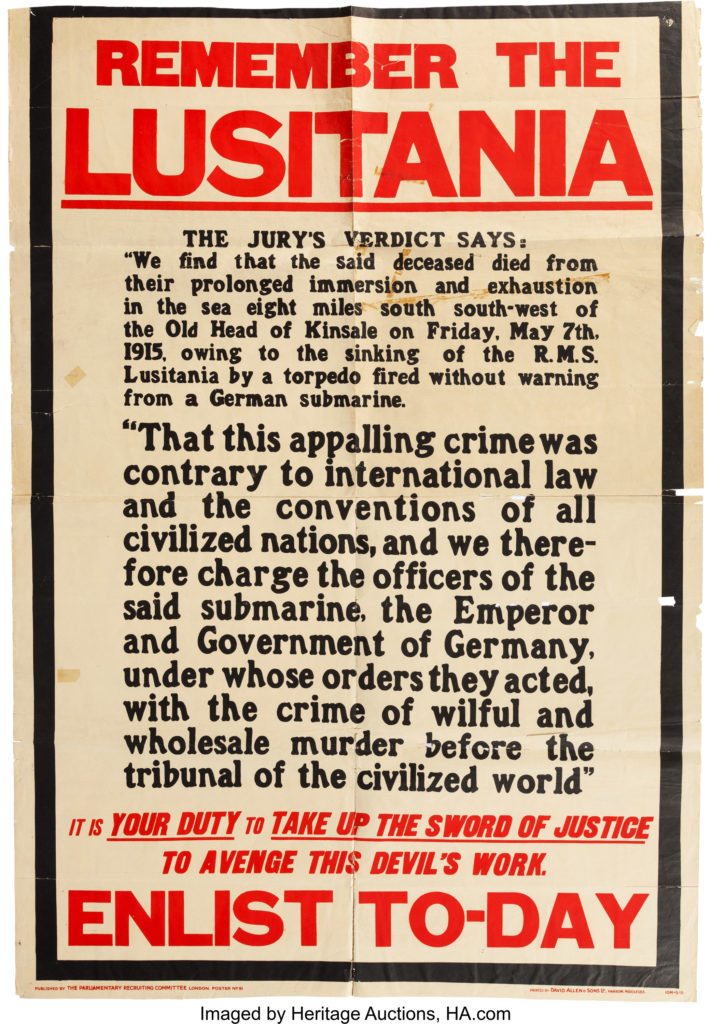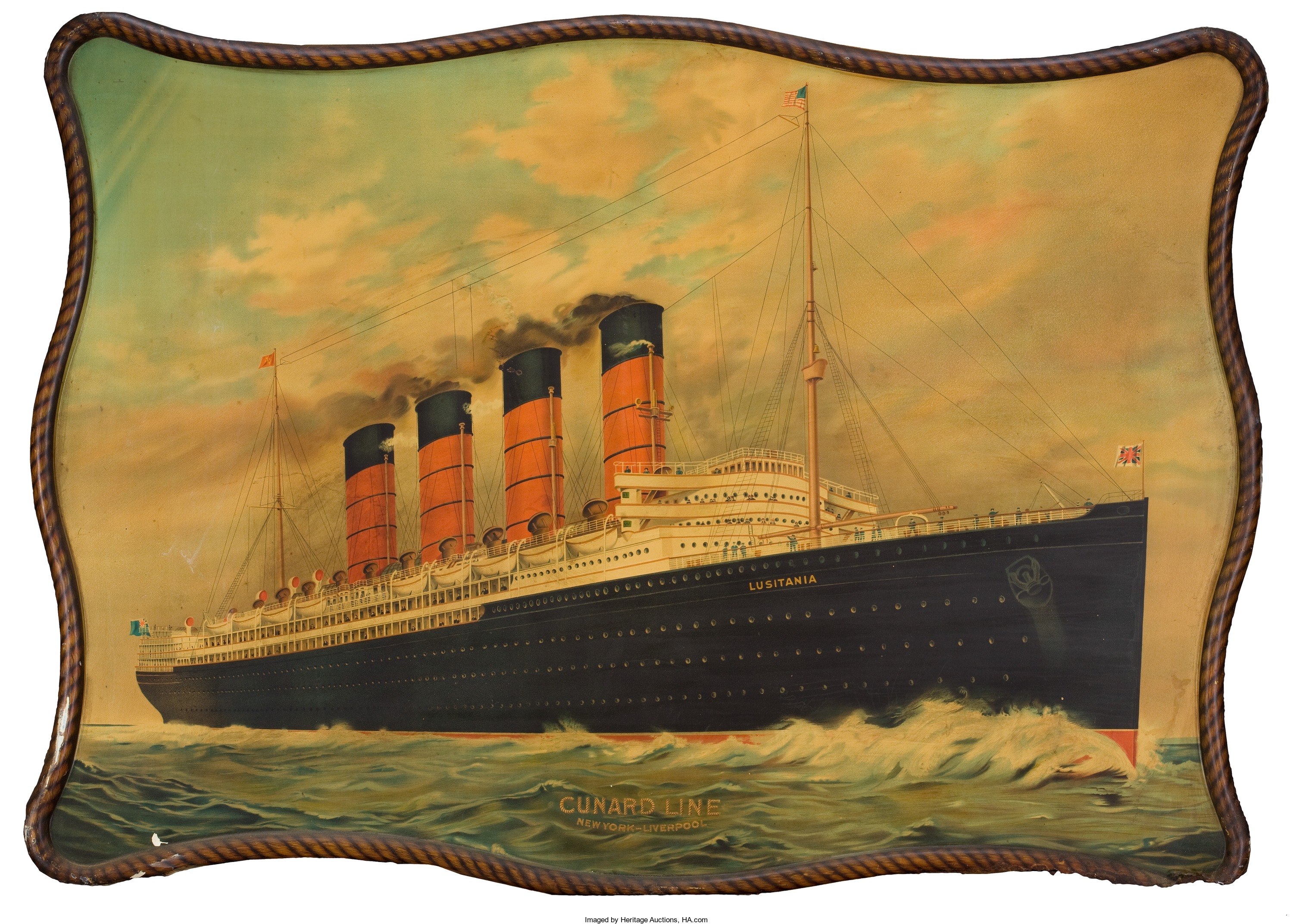
By Jim O’Neal
World War I officially began in Europe on July 28, 1914, but the strong isolationist sentiment in the United States prevented our involvement for nearly three years. The U.S. economy was booming and the tragic events in Europe were broadly viewed as a “foreign affair,” 3,000 miles across the Atlantic Ocean and something to be avoided. Further, it had only been 51 years since our Civil War had ended, with General Robert E. Lee surrendering to Ulysses S. Grant at Appomattox. The United States had not fully recovered from a military readiness standpoint and another war would be hard to sustain. The rebuilding of the South simply added to the problem.
Then there were the American bankers, who would make massive loans to Great Britain and France that would produce a nice, steady stream of profits. They were more than content to stay on the sidelines as long as their capital seemed secure. Show me a war and I will bet there are always groups profiting from making the bullets and bombs that create jobs. Other industries like steel or food production generally end up on the positive side of the export equation. Twenty-five years later, gearing up for World War II would help the country break the grip of the Great Depression. (Our military budget is currently over $700 billion … and growing.)
Another important factor were the immigrants in the United States, whose support was dependent on their country of origin. Most had left behind family and friends who would end up in harm’s way if America escalated the war. Naturally, there were also the permanent peaceniks like the Quakers and other religious groups who were simply pacifists by virtue of their beliefs. Two million socialists could be lumped into this group, as well as numerous women’s organizations.
The 8 million German-Americans had little loyalty to Germany, and were surprisingly neutral in addition to being strongly against any war, especially if it involved Germany. Their primary concern if the United States entered the war revolved around the reprisals against them as questions about their allegiance to America were already at a simmering level. This apprehension had been growing since the sinking of the British passenger ship Lusitania and German U-boats sank six American merchant ships, including the Housatonic – all without any warning.
On Nov. 7, 1916, President Woodrow Wilson was re-elected on an anti-war platform and a campaign slogan of “He kept us out of war” (note the past tense). He had defeated Supreme Court Justice Charles Evans Hughes Sr. by dominating the Southern vote and in the run-up to the election knew it would be a competitive battle. With a war raging in Europe, Wilson was concerned that if he lost, he would be a lame-duck president for four long months. He devised a clever plan that involved making Hughes the Secretary of State and then he and Vice President Thomas R. Marshall would immediately resign and Hughes would become president, as the rules of succession applied at that time.
Wilson was the first sitting Democratic president to win re-election since Andrew Jackson in 1832. Six months later, we would be in World War I due to a quirk of fate or a German blunder: the Zimmermann Telegram.
In January 1917, a coded message was sent from German Foreign Secretary Arthur Zimmermann to Germany’s Ambassador to Mexico that was to be relayed to Mexican President Venustiano Carranza. “We intend to begin on the first of February unrestricted submarine warfare. We shall endeavor to keep the United States neutral … If not succeeding, we make Mexico a proposal on the following basis; make war together, make peace together, generous financial support … Mexico is to re-conquer the lost territory in Texas, New Mexico and Arizona. The settlement detail is left to you.”
On Feb. 1, 1917, Germany began unrestricted U-boat warfare in the Atlantic. U.S. ships came under attack and the USA broke off diplomatic relations with Germany.
March 1, President Wilson authorized the State Department publication of the Zimmermann Telegram in the press and, as intended, it inflamed American public opinion against Germany.
April 2: Wilson addressed a special session of Congress to declare war.
April 4: Senate approved 82-6 (the House concurred 373-50).
April 6: Wilson signed a formal declaration of war on Germany.
And so war came again to America despite the reluctance of many people.
BTW: On April 14, after the formal declaration of war, President Carranza formally declined the German proposal. It is interesting to speculate on the outcome if the decision had been in the affirmative. I suspect we might have ended up with a few more stars on the flag.
 Intelligent Collector blogger JIM O’NEAL is an avid collector and history buff. He is president and CEO of Frito-Lay International [retired] and earlier served as chair and CEO of PepsiCo Restaurants International [KFC Pizza Hut and Taco Bell].
Intelligent Collector blogger JIM O’NEAL is an avid collector and history buff. He is president and CEO of Frito-Lay International [retired] and earlier served as chair and CEO of PepsiCo Restaurants International [KFC Pizza Hut and Taco Bell].

